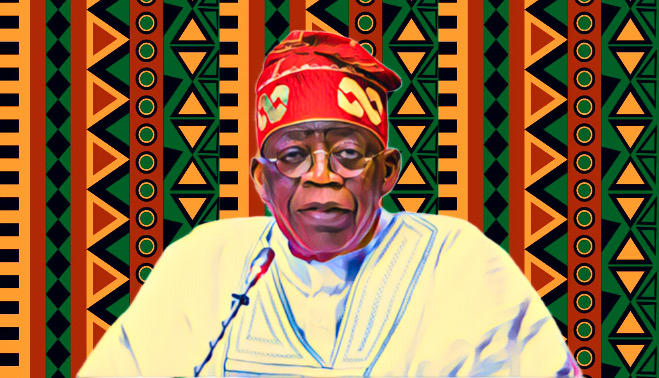Nigerian President Bola Tinubu has stated that the country will adhere to a minimum wage that aligns with its economic capabilities, emphasizing a balanced approach to wage adjustments amid economic challenges. His comments come as debates on minimum wage intensify across Nigeria.
Addressing labor unions and economic stakeholders in Abuja, President Tinubu underscored the importance of setting a sustainable minimum wage. He acknowledged the financial hardships faced by many Nigerians but stressed the need for economic prudence. “We are committed to improving the livelihoods of our citizens, but we must also consider what our economy can sustain,” Tinubu remarked.
The president’s stance comes at a time when Nigeria grapples with economic difficulties, including inflation, high unemployment rates, and public debt. These factors have fueled demands for higher wages among workers, who argue that the current minimum wage is insufficient to meet the rising cost of living. The current national minimum wage stands at ₦30,000 ($65) per month, which many workers and unions consider inadequate.
President Tinubu highlighted the government’s efforts to address these economic challenges, noting that fiscal responsibility and economic reforms are crucial for long-term stability. He pointed out that the administration is focused on creating jobs, boosting industrial growth, and enhancing public services to improve the overall economic landscape.
Labor unions, however, have been vocal about their dissatisfaction with the current minimum wage, pushing for a significant increase to help workers cope with inflation and economic pressures. The Nigeria Labour Congress (NLC) has been at the forefront of these demands, advocating for a more substantial wage hike to ensure that workers can afford basic necessities.
In response to these demands, Tinubu emphasized the importance of dialogue and collaboration between the government and labor unions. He assured that the administration is open to discussions and is willing to consider reasonable adjustments that reflect both the needs of workers and the economic realities of the country. “We must work together to find a solution that is fair and sustainable for all parties involved,” he said.
Economic analysts have weighed in on the issue, with many highlighting the delicate balance the government must maintain. While acknowledging the necessity of wage increases to support workers, they also caution against setting a minimum wage that the economy cannot sustain. They argue that excessive wage hikes could lead to higher inflation, increased business costs, and potential job losses, which would ultimately harm the very workers the wage increase aims to help.
The government’s approach to this issue will be closely watched, as it has significant implications for the country’s economic health and social stability. Striking the right balance between fair wages and economic viability is essential for fostering a thriving and equitable society.
In conclusion, President Tinubu’s statement that Nigeria will pay what it can afford in minimum wage reflects a pragmatic approach to addressing the country’s economic challenges. While committed to improving the livelihoods of its citizens, the government must ensure that wage adjustments are sustainable and conducive to long-term economic growth. As discussions continue, there is hope that a fair and balanced solution can be reached through constructive dialogue and collaboration.
Source of this article: businessday.ng



